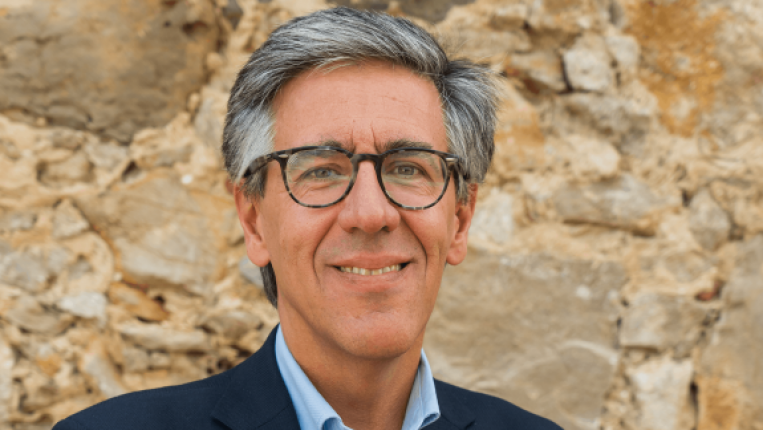Who Owns the Future of Memory – Humanity or Machines?
--» A pioneering center for interdisciplinary study of the impact of new technologies on human flourishing, LED is working closely with CIEP (the Research Centre of the Institute of Political Studies) to study the latest developments in AI and evaluate their social and ethical consequences.
As part of this, LED and CIEP are collaborating to build international research groups that explore topics on the cutting edge of tech ethics.
Follow the full article to understand how this International Conference addresses the ethical challenges and boundaries of AI, memory, and the human experience of loss ↓



Speakers:
Joseph Davis (IASC at the University of Virginia)
Davide Sisto (University of Turin)
Anne Allison (Duke University)
Vania Sousa Lima (Universidade Catolica Portuguesa
Cassandra Sever (Lumen Christi Institute)
Paul Scherz (University of Notre Dame)
Laurie Zoloth (University of Chicago)
Alexandre Palma (Universidade Catolica Portuguesa)
Micah Lott (Boston College)
William Hasselberger (Universidade Catolica Portuguesa and IASC at the University of Virginia)
Charles Ess (University of Oslo)
Carla Ganito (Universidade Catolica Portuguesa).
This month, the Digital Ethics Laboratory of the Catholic University of Portugal hosted its first international conference, in partnership with the IBM Tech Ethics Lab of the University of Notre Dame and the Institute for Advanced Studies in Culture (IASC) of the University of Virginia. The event brought together leading experts in philosophy, theology, technology, and ethics to critically examine how Artificial Intelligence is transforming the human relationship with memory, mourning, and posthumous identity. Across three thematic panels, scholars explored the emergence of AI “ghostbots” — digital avatars that simulate deceased individuals — and evaluated their implications for human dignity, justice, and the future of grief in technologically mediated societies.
Professor William Hasselberger - Director of the Digital Ethics Laboratory at the Catholic University of Portugal - inaugurated the conference, delivering the opening address that set the intellectual tone and framed the central questions of the debate.
Can these emerging technologies offer new forms of comfort in the grieving process, or do they risk undermining the authenticity of human relationships by replacing memory with simulation?




- A Reflection on the Human Condition in the Age of AI -
The conference fostered intense public engagement, with participants questioning how AI-generated representations of deceased individuals may influence legal decisions, reshape collective memory, and alter the emotional foundations of mourning.
Professor William Hasselberger also addressed the theme “Human Beings: Finite, Loving, Grieving Animals,” arguing that “a flourishing human life is grounded in deep bonds of love and friendship with others who, like ourselves, are fragile, finite, and mortal.” He went on to emphasize that “the centrality of love and attachment in human experience necessarily renders us vulnerable to grief — a fundamental dimension of the human condition.”


Throughout the conference, participants were invited to consider the central question:
“Can AI avatars of the deceased genuinely assist us in coping with grief, or do they risk creating deeper ethical and relational harms?”
This question lay at the heart of the three panels, which examined the existential and moral risks associated with the simulation of the dead through artificial intelligence.
- Real Cases, Ethical Dilemmas -
One of the most striking moments of the conference featured the presentation of a real case in which an AI ghostbot was used in a homicide trial to simulate the victim’s voice during the sentencing phase. The presiding judge, visibly moved, stated: “I love that AI, thank you for that […] I heard the forgiveness. I feel that was genuine.”
--» This example provoked a strong reaction from the audience, raising profound questions about the emotional and ethical legitimacy of allowing an artificial system to exert direct influence over judicial decision-making and the shaping of collective memory.
Also, in a keynote address, Professor Charles Ess (University of Oslo) challenged the audience to consider the implications of “digital immortality” for human personhood, identity, and the experience of loss in a world where the distinction between the living and the dead becomes increasingly blurred.


- Address by the Rector of the Portuguese Catholic University -
In the closing session, the Rector of the Portuguese Catholic University, Professora Isabel Capeloa Gil, underscored the decisive role of academia in guiding the ethical reflection on technology, stating:
“The future of this technology will shape our perception of life, the way we create, the way we tell our story, and the links that connect us to our past.”


- The Commitment of the Catholic University and the IEP -
This conference forms part of the international project Digital Afterlives, developed in partnership with the University of Notre Dame and the University of Virginia. Through this initiative, the Institute of Political Studies reaffirms its commitment to leading the ethical and philosophical reflection on the impact of artificial intelligence on human dignity.
By fostering dialogue between technology and the humanities, the IEP strengthens its mission to place the human person at the centre of the debate on the future of AI, actively contributing to the construction of a society in which innovation is guided by moral responsibility and historical consciousness.
- The research presented at the Digital Afterlives conference will be published in special edition of a highly ranked academic journal in 2026 -



